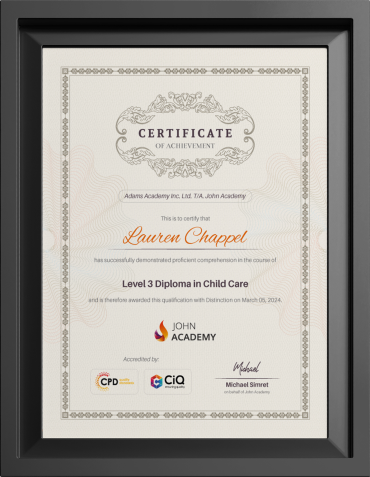
Becoming a lawyer starts in high school, where laying the right foundation is crucial. By focusing on academics, extracurricular activities, and understanding the legal landscape, students can gain a competitive edge. Studying law opens doors to versatile and lucrative careers.
The Kings states that a law degree from a US university is highly valued globally, with lawyers earning $130,000. This salary is three times the national median wage. Employment for lawyers is projected to grow by 10% from 2021 to 2031, double the average job growth rate.
Developing strong skills in critical thinking, communication, and problem-solving now will help you succeed in law school and beyond. In this article, we’ll explore how high school students can set themselves up for a successful law career.
Understand the Basics of a Legal Career
A career in law offers diverse opportunities, including criminal defence, corporate law, and civil litigation roles. Understanding different legal fields, like defending clients or drafting contracts, helps guide career decisions.
Researching legal specializations ensures a path aligned with strengths. Many high school students mistakenly assume the law is solely about courtroom drama.
Harvard University states that education law covers sectors like policy, advocacy, and special education, extending beyond litigation. Lawyers in this field address school governance, student rights, and education reform, often working with non-profits, government agencies, or private firms. Understanding law specialities is essential before pursuing legal education.
Build a Strong Academic Foundation
Subjects like English, government, and history develop critical thinking and communication skills necessary for law school success. These courses prepare students for complex legal concepts, building a solid foundation.
Taking Advanced Placement (AP) courses enhances analytical abilities, showcasing a commitment to excellence while laying the groundwork for a strong GPA.
US News states that law school admissions committees prioritize strong GPAs, with the top 20 US law schools valuing this factor. In 2021, the median GPA for accepted students was 3.86, with many schools reporting higher medians. A strong GPA, rigorous coursework, and solid LSAT scores indicate readiness for law school.
How important is my GPA in high school for pursuing a law career?
Your GPA plays a significant role in demonstrating your commitment to academic excellence, a key trait for future lawyers. Excelling in high school academics lays the groundwork for rigorous studies in law school. While extracurricular achievements also matter, a strong GPA showcases your ability to tackle complex challenges and achieve long-term educational goals.
Develop Key Skills Through Extracurricular Activities
Extracurricular activities like debate, mock trial, or student government offer valuable experiences that directly enhance legal skills and knowledge.
Participating in debate and mock trials improves public speaking, critical thinking, and argumentation skills, all central to a legal career. These activities also foster leadership, teamwork, and negotiation skills, vital for lawyers.
The UN states that participating in debate clubs or Model United Nations enhances interest in law careers by developing critical skills. These extracurriculars foster public speaking, negotiation, and research skills while exposing students to complex issues like international relations and diplomacy. This broadens students’ global perspectives.
Learn About Legal Precedents That Impact Society
Understanding legal precedents is crucial for grasping how laws evolve and adapt over time. Past court decisions guide future rulings. These precedents illuminate the legal system’s balance of fairness and justice.
Studying landmark cases helps students appreciate how law shapes social and political landscapes, preparing them for critical thinking in law.
UC Davis states that the United States v. Walker River Irrigation District addresses water diversion disputes between California and Nevada. Local governments, tribes, and environmental groups argued that diversions harm ecosystems and violate the public trust doctrine. The 9th Circuit allowed plaintiffs to pursue claims, highlighting the courts’ balance between environmental preservation and legal doctrines.
Such cases illustrate the evolving relationship between law and environmental protection, where legal frameworks often confront complex ecological challenges. They also show how the public trust doctrine serves as a foundation for arguing against unsustainable practices.
By examining these rulings, students can better understand the interplay between legal decisions, environmental priorities, and societal impact.
The AFFF lawsuit by Navy personnel also exemplifies this, spotlighting the fight for accountability in public health and environmental protection. This ongoing case underscores the importance of laws in safeguarding communities while holding corporations responsible for contamination.
According to TruLaw, over 10,000 AFFF lawsuits have been consolidated in multidistrict litigation in South Carolina’s U.S. District Court. The first bellwether trials are scheduled for 2025. Examining these impactful cases provides insights into how laws influence societal progress, inspiring aspiring lawyers to champion justice and contribute to society.
How do cases like the AFFF lawsuit shape public policy and legal practice?
The AFFF lawsuit underscores the need for stronger environmental safeguards and corporate accountability. These cases push lawmakers to address public health concerns through policy changes and stricter regulations. They also shape legal practice by setting new precedents and refining strategies for handling environmental and public safety litigation in the future.
Cultivate Writing and Research Skills
Lawyers are expected to analyze complex issues, draft legal documents, and communicate effectively in writing. High school students can develop these skills by writing research papers and essays and participating in activities that require thoughtful analysis.
Learning how to conduct research efficiently and present findings clearly will set you up for success in law school. Building research and writing skills early will prepare you for law school and legal practice challenges.
Plan Your Educational Path Strategically
Research universities that offer pre-law programs or strong academic tracks that align with your interests. Many top universities also provide internships or networking opportunities that can connect you with professionals in the legal field.
Choosing the right undergraduate program will give you access to valuable resources, such as mentorship and internships, that shape your future career. By selecting programs that offer both theoretical and practical knowledge, you will ensure that your education supports your long-term legal goals.
When should I start preparing for the LSAT, and what resources are available?
Start preparing for the LSAT early, ideally by junior year of high school, to build essential skills and confidence. Use resources like prep courses, self-study guides, and free practice tests to familiarize yourself with the format and track progress. Consistent, focused practice ensures better readiness and improves your chances of securing a competitive score for law school admissions.
Setting the Stage for Success
Early preparation, academic excellence, and involvement in extracurricular activities will set the stage for a successful legal career. By understanding the legal profession, honing essential skills, and planning your educational path, you will thrive in law school and beyond. Focusing on writing, research, and understanding legal precedents will further equip you for the challenges ahead.


